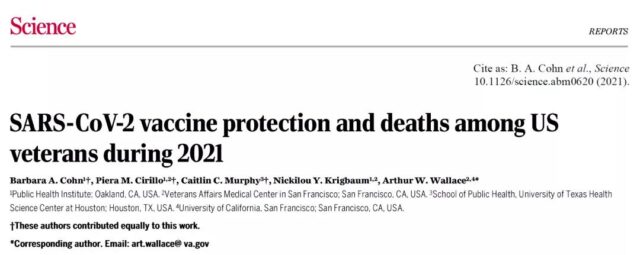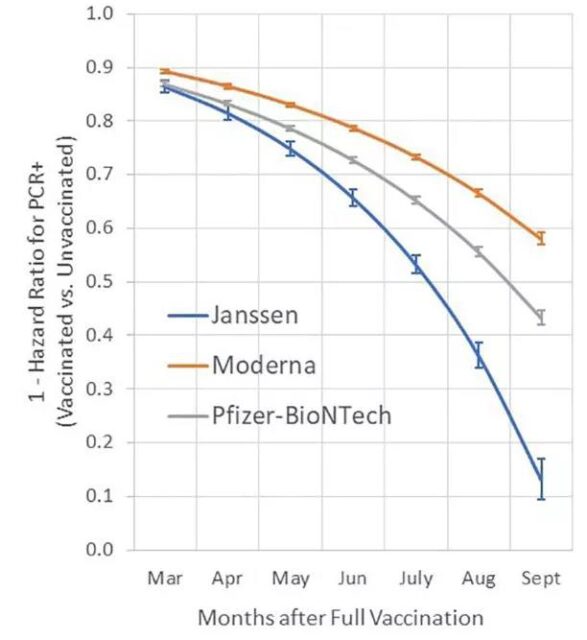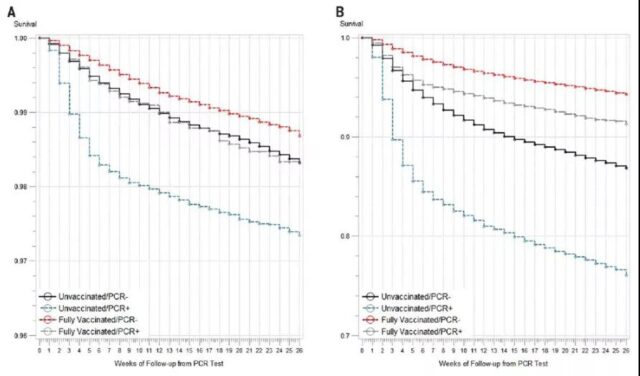Science: Why the effectiveness of the COVID-19 vaccine is rapidly declining?
- Why Lecanemab’s Adoption Faces an Uphill Battle in US?
- Yogurt and High LDL Cholesterol: Can You Still Enjoy It?
- WHO Releases Global Influenza Vaccine Market Study in 2024
- HIV Infections Linked to Unlicensed Spa’s Vampire Facial Treatments
- A Single US$2.15-Million Injection to Block 90% of Cancer Cell Formation
- WIV: Prevention of New Disease X and Investigation of the Origin of COVID-19
Science: Why the effectiveness of the COVID-19 vaccine is rapidly declining?
- Red Yeast Rice Scare Grips Japan: Over 114 Hospitalized and 5 Deaths
- Long COVID Brain Fog: Blood-Brain Barrier Damage and Persistent Inflammation
- FDA has mandated a top-level black box warning for all marketed CAR-T therapies
- Can people with high blood pressure eat peanuts?
- What is the difference between dopamine and dobutamine?
- How long can the patient live after heart stent surgery?
Science: Why the effectiveness of the COVID-19 vaccine is rapidly declining?
The new coronavirus (SARS-CoV-2) usually infects humans through the respiratory tract and causes damage to the respiratory system and various organs of the human body. Since its first outbreak at the end of 2019, the new coronavirus is still raging around the world and has a great negative impact on the world economy and society.
With the large-scale epidemic of the virus, new virus mutant strains continue to appear. At present, the most concerned about the world is the Delta mutant strain. Since it was discovered in India at the end of last year, it has rapidly swept the world and became the main epidemic in most parts of the world. Strains, the effectiveness of the vaccine has become particularly important.
On November 4, 2021, researchers from the University of California, San Francisco and the University of Texas published a research paper titled: SARS-CoV-2 vaccine protection and deaths among US veterans during 2021 in the Science journal.
Studies have shown that the effectiveness of the COVID-19 vaccine will decline sharply over time, but vaccination can still prevent the risk of severe illness and death.
Specifically, as of October this year, the effective rate of Moderna’s mRNA vaccine dropped from 89% in March to 58%. During the same period, the effectiveness of Pfizer-BioNTech’s mRNA vaccine dropped from 87.9% to 45%. The most striking thing is that the protective capacity of Johnson & Johnson’s adenovirus vector vaccine plummeted from 86% to 13%.

These three vaccines performed better in terms of their ability to prevent deaths from COVID-19, but by July, with the large-scale epidemic of Delta variants, infections and deaths surged, and the effectiveness of the vaccines on this score also showed huge gap.
In the study, the researchers analyzed the records of 780,225 veterans from the United States Veterans Health Administration, of which 498,148 were fully vaccinated. There are six times as many men as women, and they are older. About 48% of people are over 65 years old, 29% are between 50-64 years old, and 24% are under 50 years old.
These people come from all over the United States and are taken care of by the Unified Veterans Affairs System, which provides health care services to 2.7% of the US population. Although the groups studied are ethnically different, the records are consistent.
Although elderly veterans were more likely to die than younger veterans throughout the study period, the protective effects of vaccines against disease and death declined in both young and old. This new study provides the most comprehensive comparison to date of the performance of these three vaccines across the country this year.
The study found that as of October this year, the effective rate of Moderna vaccine dropped from 89% in March to 58%. During the same period, the effectiveness of the Pfizer-BioNTech vaccine dropped from 87.9% to 45%.
The most striking thing is that the protective ability of Johnson & Johnson’s single-dose vaccine plummeted from 86% to 13%.
 Over time, the effectiveness of the three vaccines
Over time, the effectiveness of the three vaccines
Vaccination can prevent the risk of severe illness and death. Among veterans aged 65 and over who received Moderna’s mRNA vaccine, veterans with breakthrough infections died of COVID-19 compared with veterans of the same age who were not vaccinated. The probability is 76% lower.
Elderly veterans who were vaccinated with Pfizer-BioNTech’s mRNA vaccine and subsequently experienced breakthrough infections were 70% less likely to die than their unvaccinated peers.
Elderly people who received a dose of Johnson & Johnson’s adenovirus vector vaccine are 52% less likely to die when they have a breakthrough infection than their peers who have not received any vaccine.
For young veterans under the age of 65, Pfizer-BioNTech and Moderna vaccines provide the best protection against fatal cases of COVID-19, with effective rates of 84% and 82% respectively in the case of breakthrough infections. When young veterans who received the Johnson & Johnson vaccine suffered a breakthrough infection, the effective rate was 73%.
 People who have not been vaccinated have the highest risk of death after infection
People who have not been vaccinated have the highest risk of death after infection
In this regard, the US Centers for Disease Control and Prevention recommends that all people vaccinated with Johnson & Johnson vaccine be boosted at least 2 months in advance. It is also recommended that everyone who is vaccinated with Moderna or Pfizer vaccine over 65, get a booster shot after 6 months.
In addition, it is recommended that all people with compromised immune systems receive booster injections at least 28 days after the vaccine is fully effective.
The lead author of the study stated that in addition to the comparison of COVID-19 vaccines, the analysis of the study also made informed decisions for vaccination, booster injections, and other multi-layer protections, including mask requirements, coronavirus testing, and other purposes. Public health measures in the fight against the spread of the virus.
In addition, strong evidence of the decline in vaccine effectiveness urges states and regions with high vaccination rates to continue to wear masks. And these findings strongly support the recent recommendations of the US Centers for Disease Control and Prevention, that all people vaccinated by Johnson & Johnson should receive booster shots.
Paper link:
https://www.science.org/doi/10.1126/science.abm0620
Science: The effectiveness of the COVID-19 vaccine is rapidly declining
(source:internet, reference only)
Disclaimer of medicaltrend.org
Important Note: The information provided is for informational purposes only and should not be considered as medical advice.



